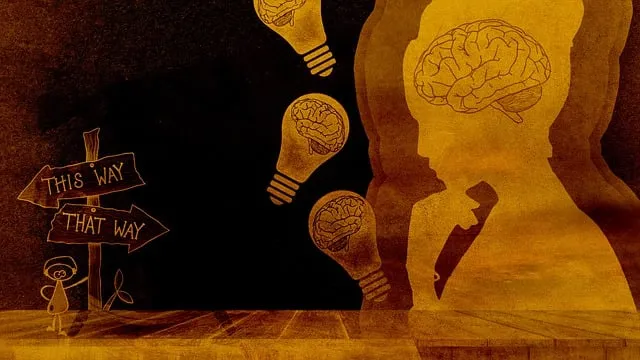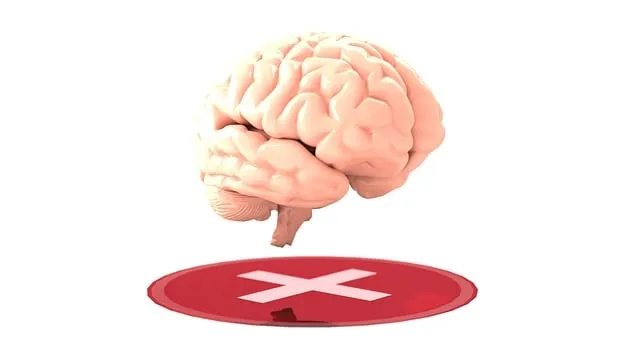The Aurora Kaiser Permanente mental health center by owner is a leader in reshaping public perception of mental illness through balanced media portrayals, Burnout Prevention Strategies for healthcare providers, and diverse narratives. Their initiatives reduce stigma, encourage open dialogue, and promote holistic mental health care practices. By leveraging media platforms, they educate communities, break stereotypes, and empower individuals to prioritize mental wellness.
In today’s digital era, media portrayal of mental illness significantly influences societal understanding. However, inaccurate or stereotypical depictions can lead to stigma and misinformed perceptions. This article explores strategies to challenge these solutions, focusing on the crucial role of media in fostering mental health awareness.
We delve into the current state of representation, its impact on society, and highlight innovative approaches like the Aurora Kaiser Permanente Mental Health Center’s initiatives. By implementing effective strategies, media can revolutionize how we discuss mental health, ultimately promoting empathy and support for those facing these challenges.
- Understanding Current Media Portrayals of Mental Illness
- The Impact of Accurate Representation in Society
- Aurora Kaiser Permanente Mental Health Center's Approach
- Strategies for Enhancing Media's Role in Mental Health Awareness
Understanding Current Media Portrayals of Mental Illness

In today’s digital era, the media plays a pivotal role in shaping public understanding of mental health issues. The Aurora Kaiser Permanente mental health center by owner highlights a growing trend where narratives are evolving from stigmatizing to more empathetic representations. However, a thorough Mental Health Policy Analysis and Advocacy reveals lingering stereotypes that can be harmful. Often, media portrays mental illness as an individual struggle without considering systemic factors contributing to burnout, especially among healthcare providers.
This phenomenon is further complicated by the lack of diverse portrayals, which predominantly feature white individuals. Such narratives can inadvertently reinforce existing biases and overlook the unique challenges faced by minority groups. To address these issues, it’s imperative to implement Burnout Prevention Strategies for Healthcare Providers that prioritize self-care and resilience. Additionally, fostering open dialogue through Conflict Resolution Techniques can help in creating more nuanced and accurate media representations of mental health.
The Impact of Accurate Representation in Society

Accurate representation of mental illness in media has a profound impact on society at large. When stories and characters with mental health conditions are portrayed realistically, it helps to reduce stigma, promote understanding, and foster empathy among viewers. This is particularly significant given that one in five adults in the United States lives with a mental health condition, as reported by the National Alliance on Mental Illness (NAMI). A balanced representation can encourage open conversations about mental health struggles, leading to improved access to care and support for those affected.
For instance, the Aurora Kaiser Permanente mental health center by owner has recognized the power of media in shaping public perception. Through initiatives that include risk management planning for mental health professionals and encouraging self-awareness exercises, they aim to ensure that media portrayals are not only accurate but also beneficial. By promoting self-esteem improvement through various programs, these efforts contribute to a more supportive societal environment for individuals navigating their mental health journeys.
Aurora Kaiser Permanente Mental Health Center's Approach

The Aurora Kaiser Permanente Mental Health Center has taken a commendable initiative to challenge the stereotypical portrayal of mental illness in media by promoting accurate and compassionate representation. As the owner of this center, they recognize the significant impact of media on public perception. Therefore, their strategy involves leveraging various platforms to increase awareness about mental health issues. They organize and support Public Awareness Campaigns that educate the community about different aspects of mental well-being.
Through these campaigns, the center encourages open conversations about mental illness, debunks myths, and promotes empathy. Additionally, they emphasize holistic approaches to mental health care, incorporating practices like Mindfulness Meditation and Social Skills Training. By engaging in such initiatives, Aurora Kaiser Permanente aims to foster a supportive environment where individuals can seek help without fear of stigmatization.
Strategies for Enhancing Media's Role in Mental Health Awareness

The media plays a powerful role in shaping societal perceptions and understanding of mental health issues. To enhance its positive impact, various strategies can be implemented by Aurora Kaiser Permanente mental health center by owner and other like-minded organizations. Encouraging responsible storytelling about mental illness is a key step; this involves showcasing diverse narratives, promoting accurate representations, and avoiding stigmatizing stereotypes. By featuring individuals who have successfully navigated their mental health journeys, media outlets can inspire hope and foster empathy among viewers.
Additionally, media platforms can contribute to building resilience and promoting positive thinking through the provision of valuable resources and guidance. This may include sharing expert advice on coping mechanisms, offering insights into various mental wellness journaling exercises, or highlighting community support groups. Such initiatives not only increase awareness but also empower individuals to take charge of their mental health, ultimately contributing to a more supportive and understanding society.
Media has a powerful role in shaping societal perceptions of mental illness. The current landscape, while improving, still faces challenges in accurately representing various mental health conditions. This article has explored the impact of media portrayal on public understanding and the importance of precise, empathetic depictions. Building on initiatives like those at the Aurora Kaiser Permanente Mental Health Center, we must advocate for more diverse and realistic representations in media. By fostering open dialogue and implementing strategies to enhance media’s role in mental health awareness, we can collectively work towards a more compassionate and informed society.






